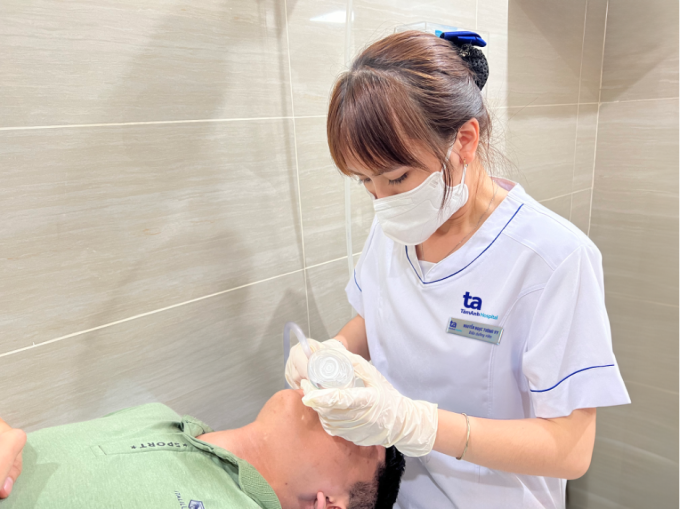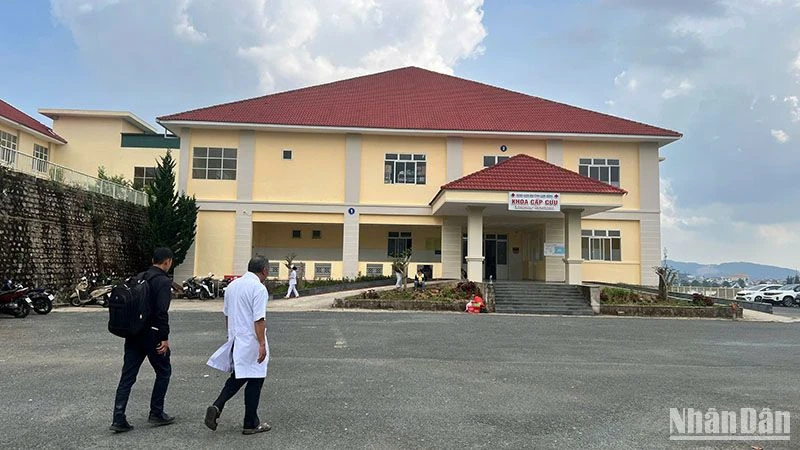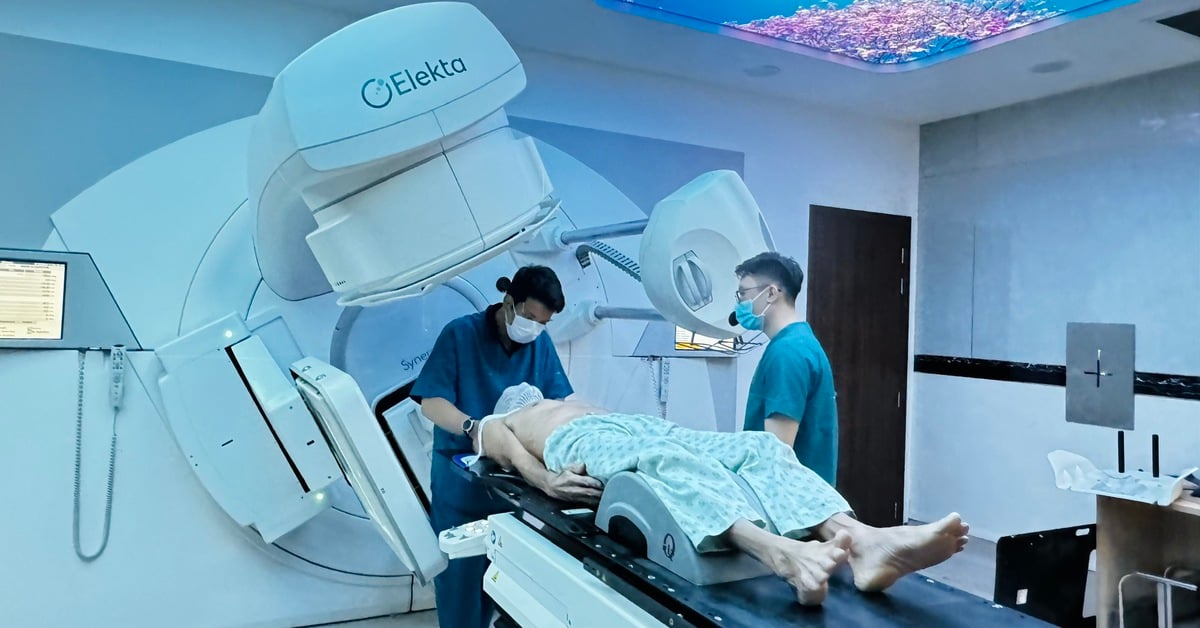Tam Anh General Hospital in Ho Chi Minh City received nearly 300 sinusitis patients in one month, including many relapse cases, an increase of 20% compared to the same period last year.
On April 5, Master, Doctor, CKI Truong Tri Tuong, ENT Center, Tam Anh General Hospital, Ho Chi Minh City, shared the above information, adding that patients with recurrent sinusitis who come for examination almost all have the habit of turning on the air conditioner at a low temperature (16-22 degrees Celsius).
Doctor Tuong explained that sinusitis is common during the changing seasons. Prolonged hot weather increases the demand for air conditioning, and many people use it incorrectly, creating conditions for the disease to recur and become more severe.
When the air conditioner is turned on, the air in the room loses its natural humidity, becomes dry, and body temperature drops, causing an imbalance in the body's adaptive thermogenesis. This is an ideal condition for bacteria and viruses to attack, causing respiratory diseases, especially sinusitis, and worsening symptoms.
Air that is too dry can also dry out the nasal mucosa, affecting the ability of the sinuses to clear. The mucus that normally resides in the sinuses can also become drier and thicker, reducing its ability to drain through the nose.
Air conditioners that have been left for a long time and have not been cleaned properly contain a lot of dust and bacteria. They can enter the air and enter the respiratory tract, causing sinusitis to recur.
In addition, many habits such as eating and drinking very cold food or drinking ice water to cool down dry out the throat lining, creating an opportunity for bacteria and viruses to enter and cause sore throat. The nose and throat are connected, so when the throat is inflamed, bacteria can easily enter the nose and affect the sinuses. Other factors such as dust and exhaust fumes from vehicles can also be factors.
Nhu Phat, 17 years old, came to Tam Anh General Hospital in Ho Chi Minh City for examination due to a runny nose with thick, yellow discharge, cough, and stuffy nose for more than a week causing insomnia, pain, and numbness in the forehead and cheeks. The pain tended to get worse and sometimes spread to the top of the head, and his breath had a strong odor.
Phat's nasopharyngeal endoscopy results showed that his nose had a lot of cloudy mucus, pus in the nasal cavity, and swollen mucosa.
Doctor Tuong said Phat had recurrent acute sinusitis and was prescribed nasal aspiration to reduce mucus, clear the sinuses, and nasal inhalation to increase treatment effectiveness.

Nurse cleans patient's nose. Illustration: Tam Anh General Hospital
Similarly, Mr. Dung, 35 years old, has a history of sinusitis. Recently, it has been hot so he sits in the air conditioner continuously, 8 hours in the office and all night at home, the temperature is often at 22-25 degrees Celsius.
For the past two weeks, Mr. Dung has had headaches, sinus pain, runny nose, constant sneezing, occasional fever, and has not been relieved by medication. He went to Tam Anh Hospital for a check-up. The results of a nasopharyngeal endoscopy showed that the nasal mucosa was swollen and there was a small amount of mucus in the nasal passages. The doctor diagnosed him with recurrent acute sinusitis, and he was treated with internal medicine and returned for follow-up.
Doctor Tuong recommends that people with sinusitis who use air conditioners in hot weather should not set the temperature too low (15-16 degrees Celsius), but should only set the room temperature to about 26-27 degrees Celsius. Avoid sudden changes in air conditioner temperature, do not enter the air-conditioned room immediately after being outside in the sun, and clean this device regularly.
Sinusitis, if not treated promptly and properly, can easily progress to become chronic, causing serious complications such as orbital infection, cavernous sinus thrombosis, brain abscess, and meningitis.
People with sinusitis can increase humidity or add moisture to the air-conditioned room by placing a basin of water, using a humidifier... Drink enough water (about two liters per day) to avoid dehydration, provide moisture to thin mucus, and facilitate airway circulation. Do not drink ice water, eat cold or spicy foods, avoid dusty places, keep your nose and throat clean, and follow your doctor's treatment.
Uyen Trinh
| Readers ask questions about ear, nose and throat diseases here for doctors to answer |
Source link





![[Photo] Looking back at the impressive moments of the Vietnamese rescue team in Myanmar](https://vstatic.vietnam.vn/vietnam/resource/IMAGE/2025/4/11/5623ca902a934e19b604c718265249d0)
![[Photo] "Beauties" participate in the parade rehearsal at Bien Hoa airport](https://vstatic.vietnam.vn/vietnam/resource/IMAGE/2025/4/11/155502af3384431e918de0e2e585d13a)

























![[Photo] Summary of parade practice in preparation for the April 30th celebration](https://vstatic.vietnam.vn/vietnam/resource/IMAGE/2025/4/11/78cfee0f2cc045b387ff1a4362b5950f)



























































Comment (0)